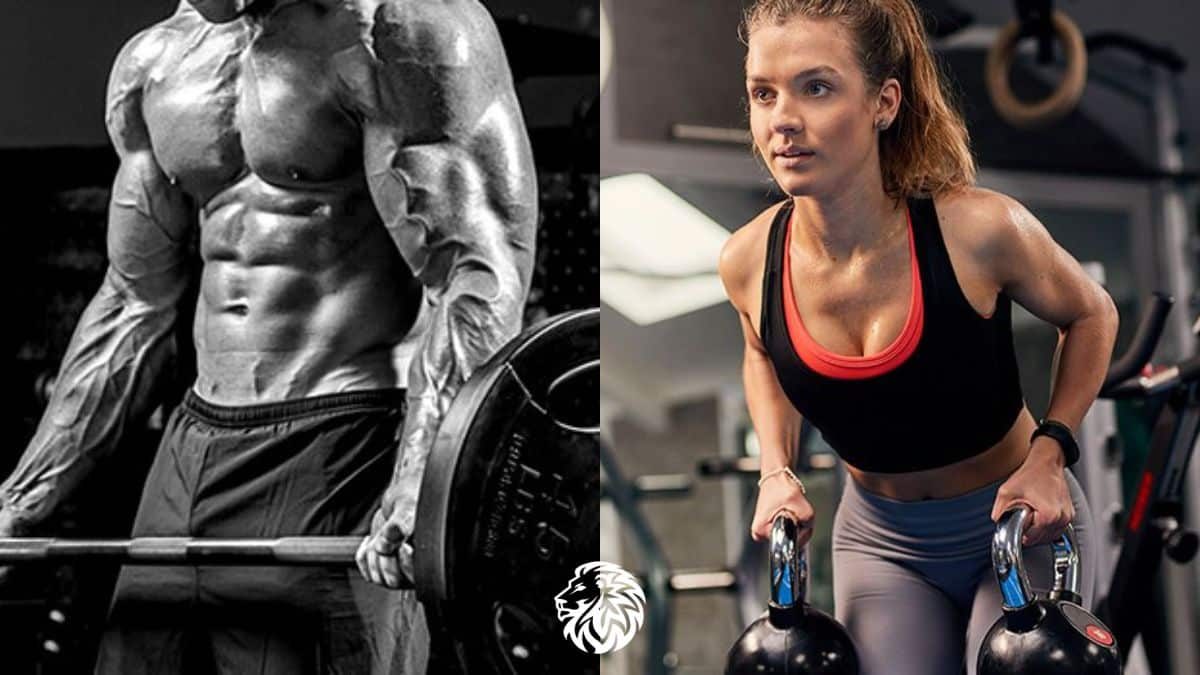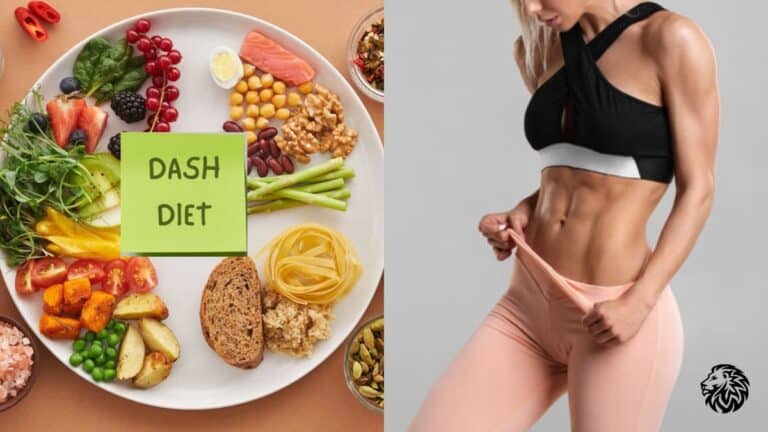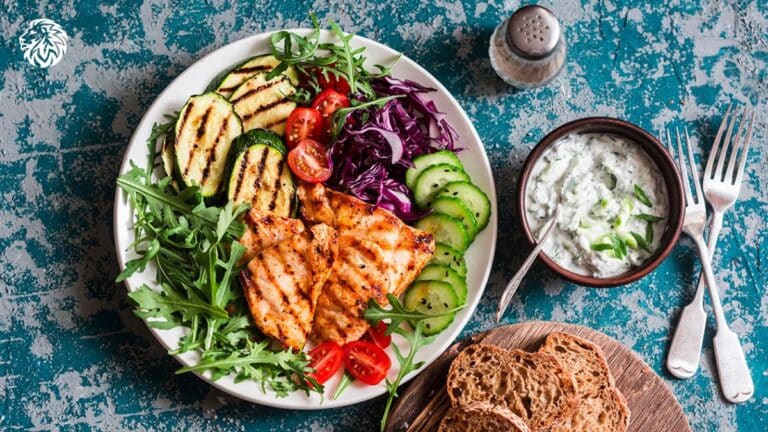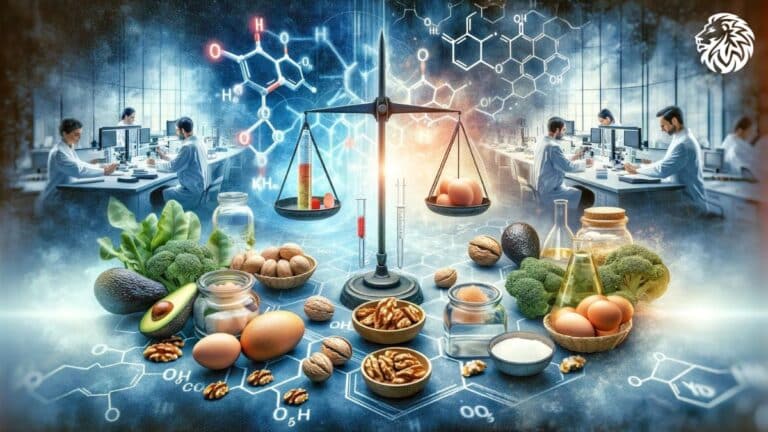Are you working hard at the gym, but not seeing the muscle gains you want? The secret to building muscle isn’t just about lifting heavy weights – your nutrition plays a crucial role too. This article will walk you through the 12 essential nutrients your body requires for effective muscle growth and maintenance. In addition, you will be provided advice on how to include these 12 essential nutrients in your diet. Let’s dive in and fuel your fitness journey!
12 Nutrients Your Body Needs to Maximize Muscle Growth
1. Protein: The Building Blocks of Muscle
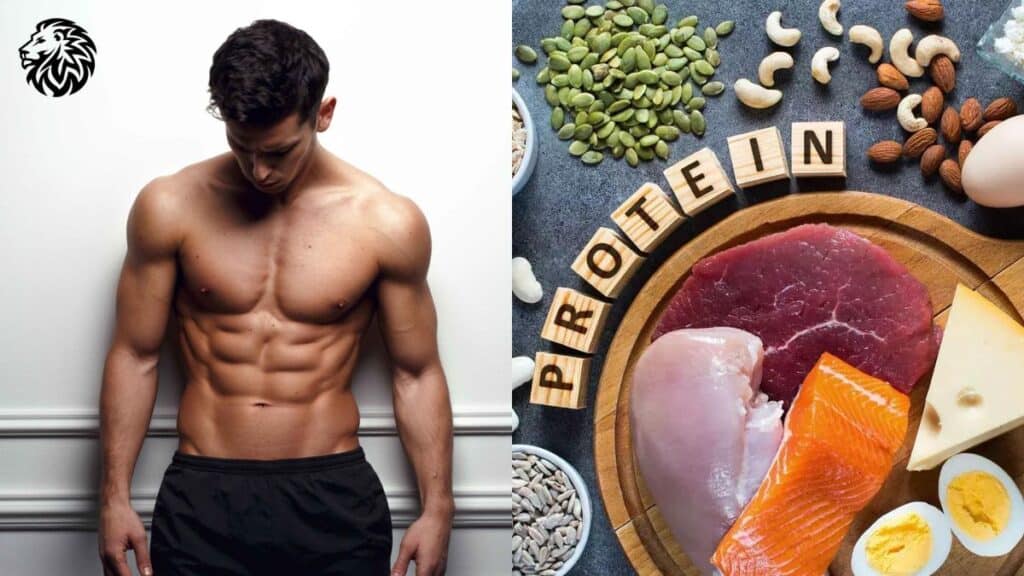
Protein is crucial for muscle growth and repair, as it provides the essential amino acids needed to build new muscle tissue. It also helps maintain and repair existing muscle fibers, especially after intense exercise. In addition, protein plays a key role in hormone production and immune function, both of which support overall muscle health.
To ensure you’re getting a complete range of amino acids, consume a variety of protein-rich foods. Some of the best sources include:
- Lean meats (chicken, turkey, lean beef)
- Fish (salmon, tuna, cod)
- Dairy products (Greek yogurt, cottage cheese, milk)
- Eggs
- Plant-based proteins (legumes, tofu, tempeh, seitan)
- Nuts and seeds (almonds, pumpkin seeds, sunflower seeds)
- Protein powders (whey, casein, pea, hemp)
2. Carbohydrates: Fuel for Your Workouts
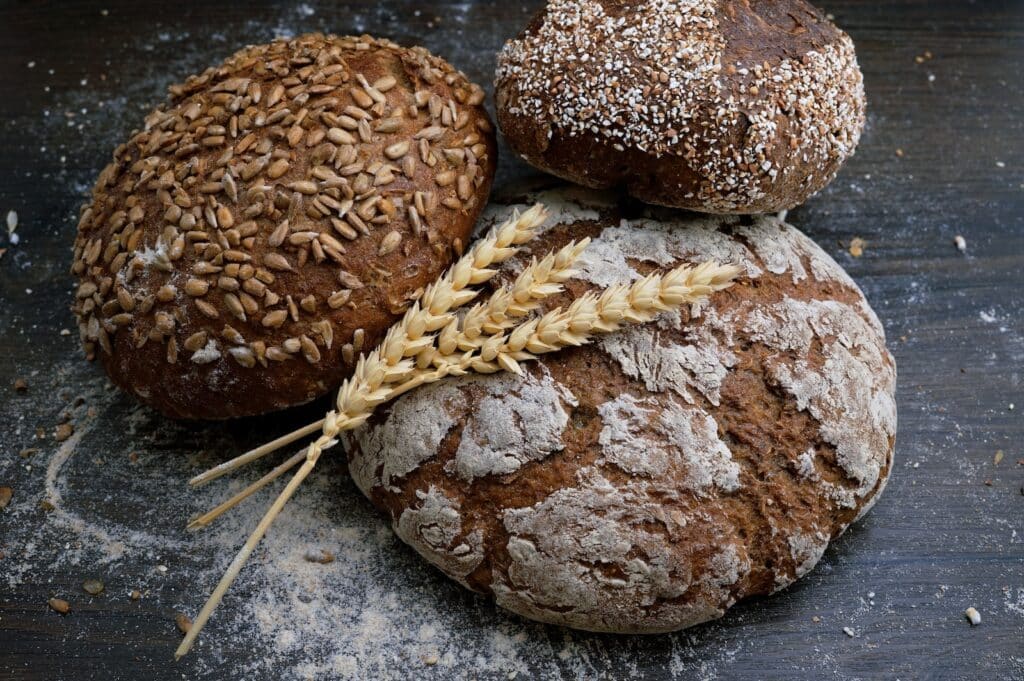
Carbohydrates are the primary fuel source for your muscles during exercise. They provide the necessary energy to power through your workouts and help replenish glycogen stores, which aids in muscle recovery and growth. Consuming enough carbohydrates ensures that your body doesn’t use protein for energy, allowing it to focus on muscle repair and growth instead.
Opt for complex carbohydrates that are slowly digested and provide a steady energy supply. Some ideal sources include:
- Whole grains (brown rice, quinoa, whole wheat bread, oats)
- Fruits (apples, bananas, berries, oranges)
- Vegetables (sweet potatoes, leafy greens, bell peppers)
- Legumes (beans, lentils, chickpeas)
3. Healthy Fats: More Than Just Energy Reserves
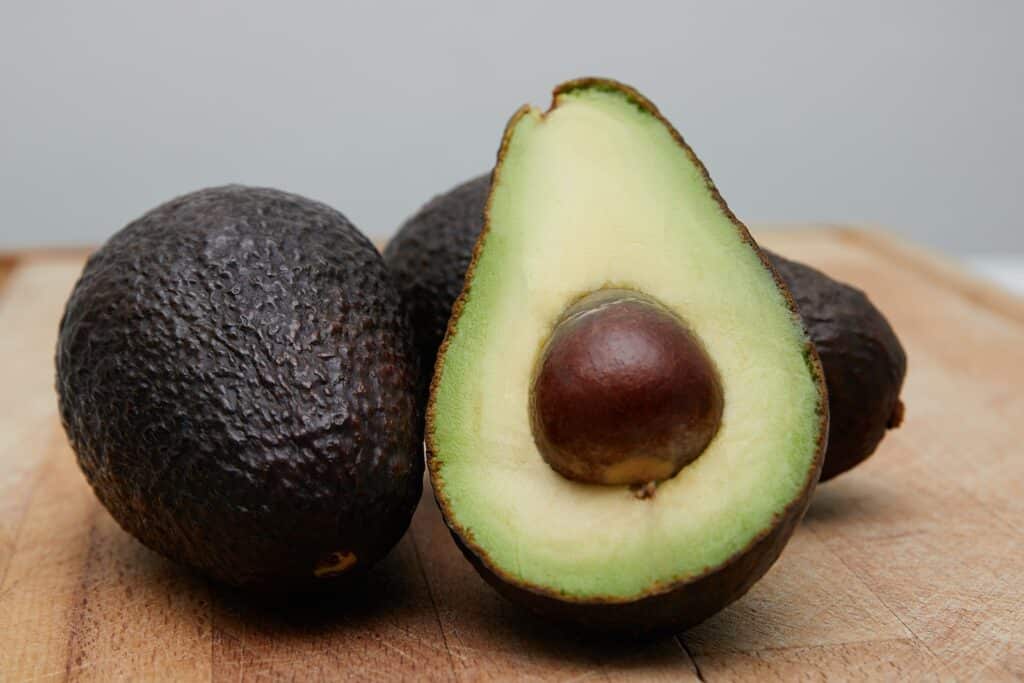
Healthy fats play a significant role in muscle development by supporting hormone production, particularly testosterone, which is essential for muscle growth. They also help reduce inflammation and promote recovery, allowing you to bounce back from workouts more effectively. In addition, fats provide energy and assist with the absorption of fat-soluble vitamins, which are crucial for overall health.
Incorporate a variety of healthy fats into your diet to ensure you receive their full range of benefits. Some top choices include:
- Avocado
- Nuts (almonds, walnuts, pistachios)
- Seeds (chia, flax, hemp)
- Oily fish (salmon, mackerel, sardines)
- Olive oil
- Coconut oil
- Nut butters (almond, peanut, cashew)
4. Vitamin D: Strengthening Bones and Muscles
Vitamin D plays a crucial role in muscle function and bone health. It helps regulate calcium and phosphorus absorption, promoting strong bones and reducing the risk of injury during exercise. Additionally, Vitamin D has been linked to improved muscle strength and function, as well as a reduced risk of falls and fractures in older adults.
Vitamin D can be obtained through sunlight exposure, diet, and supplementation. To ensure adequate levels:
- Get 10-30 minutes of sun exposure on your face, arms, and legs at least twice a week, depending on your skin type and location.
- Consume Vitamin D-rich foods, such as fatty fish (salmon, mackerel, sardines), fortified dairy products, eggs, and beef liver.
- Consider taking a Vitamin D supplement, especially if you live in a region with limited sunlight or have difficulty absorbing the vitamin from food.
5. Calcium: A Key Player in Muscle Function
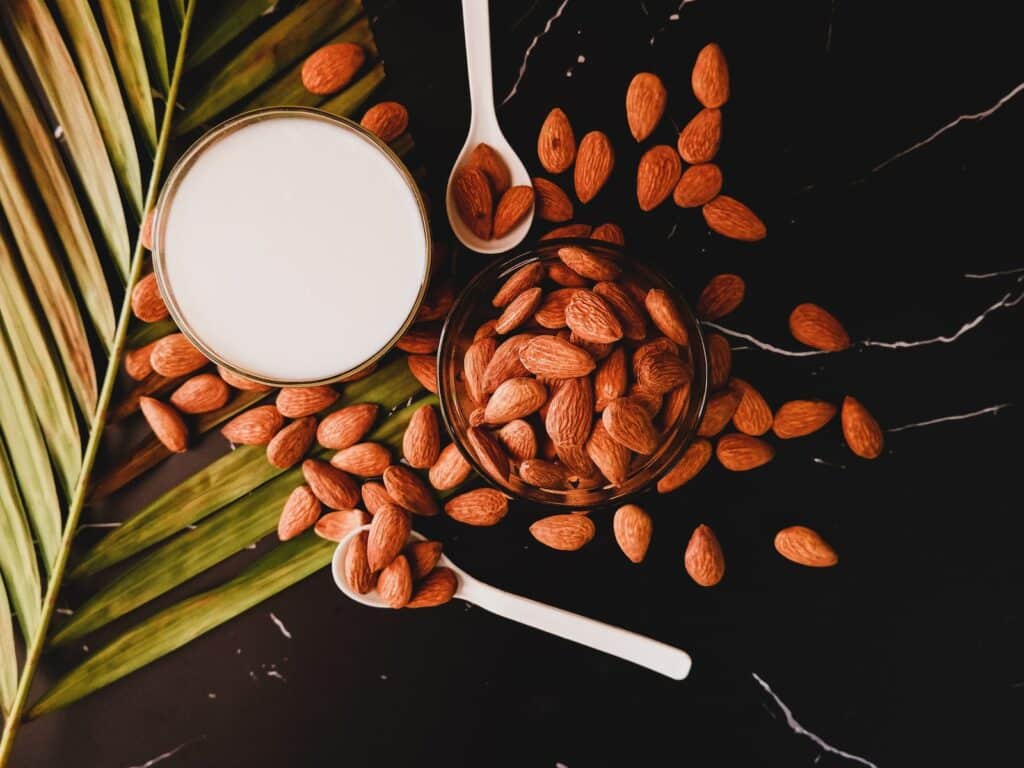
Calcium is essential for proper muscle function, as it plays a critical role in muscle contraction and relaxation. It also helps maintain strong bones, which are crucial for supporting your muscles during exercise. Adequate calcium intake can improve athletic performance and reduce the risk of injury.
Incorporate a variety of calcium-rich foods into your diet to support muscle health:
- Dairy products (milk, yogurt, cheese)
- Leafy green vegetables (kale, spinach, bok choy)
- Fish with soft bones (sardines, canned salmon)
- Fortified plant-based milks (almond, soy, oat)
- Fortified orange juice
- Tofu
- Almonds
6. Magnesium: Regulating Muscle Contraction
Magnesium is vital for muscle health, as it plays a key role in muscle contraction, relaxation, and overall function. It also helps maintain a healthy nervous system, supports energy production, and aids in protein synthesis. Adequate magnesium intake can improve exercise performance and reduce muscle cramps, weakness, and fatigue.
To ensure you get enough magnesium for optimal muscle health, include a variety of magnesium-rich foods in your diet:
- Dark leafy greens (spinach, Swiss chard, kale)
- Nuts and seeds (pumpkin seeds, almonds, cashews)
- Legumes (black beans, kidney beans, chickpeas)
- Whole grains (brown rice, quinoa, whole wheat bread)
- Fish (salmon, mackerel, halibut)
- Avocado
- Dark chocolate
7. Potassium: Maintaining Fluid Balance and Nerve Function

Potassium is an essential mineral that plays a vital role in muscle function by maintaining fluid balance, transmitting nerve signals, and supporting muscle contractions. It helps prevent muscle cramps and weakness, which can impact your exercise performance. Additionally, potassium aids in the removal of waste products generated during exercise, promoting faster recovery.
To ensure you get enough potassium for optimal muscle function, include a variety of potassium-rich foods in your diet:
- Bananas
- Sweet potatoes
- Leafy greens (spinach, kale, Swiss chard)
- Avocado
- Tomatoes
- Oranges and orange juice
- Beans and legumes (kidney beans, lentils, chickpeas)
- Potatoes
- Dried fruits (raisins, apricots, prunes)
8. Iron: Oxygen Transportation for Peak Performance
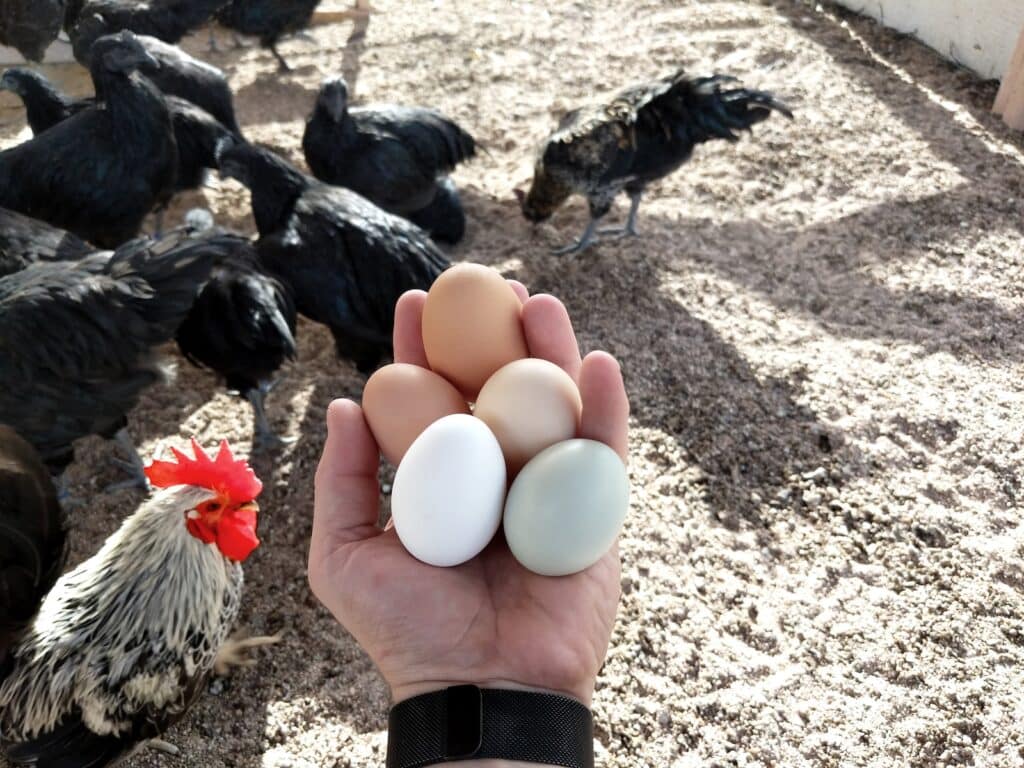
Iron plays a critical role in transporting oxygen throughout the body, including to your muscles, which is essential for energy production and muscle function. Adequate iron intake ensures that your muscles receive the oxygen they need to perform at their best, promoting muscle endurance and recovery. Iron is also involved in the synthesis of certain amino acids, which are crucial for muscle growth.
Incorporate a variety of iron-rich foods into your diet to support muscle growth:
- Red meat (beef, lamb, venison)
- Poultry (chicken, turkey)
- Fish (salmon, tuna, sardines)
- Legumes (lentils, chickpeas, soybeans)
- Leafy green vegetables (spinach, kale, Swiss chard)
- Fortified cereals and grains
- Nuts and seeds (pumpkin seeds, cashews, almonds)
9. B Vitamins: Supporting Energy Metabolism and Muscle Repair
B vitamins play a crucial role in energy metabolism, helping to convert the food you eat into energy for your muscles. They also support muscle repair and growth by aiding in protein synthesis and red blood cell production. Adequate intake of B vitamins can help improve exercise performance, reduce fatigue, and promote faster recovery.
To ensure you get enough B vitamins for optimal muscle health, include a variety of B-vitamin-rich foods in your diet:
- Whole grains (brown rice, whole wheat bread, quinoa)
- Lean meats (chicken, turkey, lean beef)
- Fish (salmon, tuna, mackerel)
- Dairy products (milk, yogurt, cheese)
- Eggs
- Legumes (beans, lentils, chickpeas)
- Leafy green vegetables (spinach, kale, Swiss chard)
- Nuts and seeds (sunflower seeds, almonds, peanuts)
10. Omega-3 Fatty Acids: Reducing Inflammation and Supporting Muscle Recovery
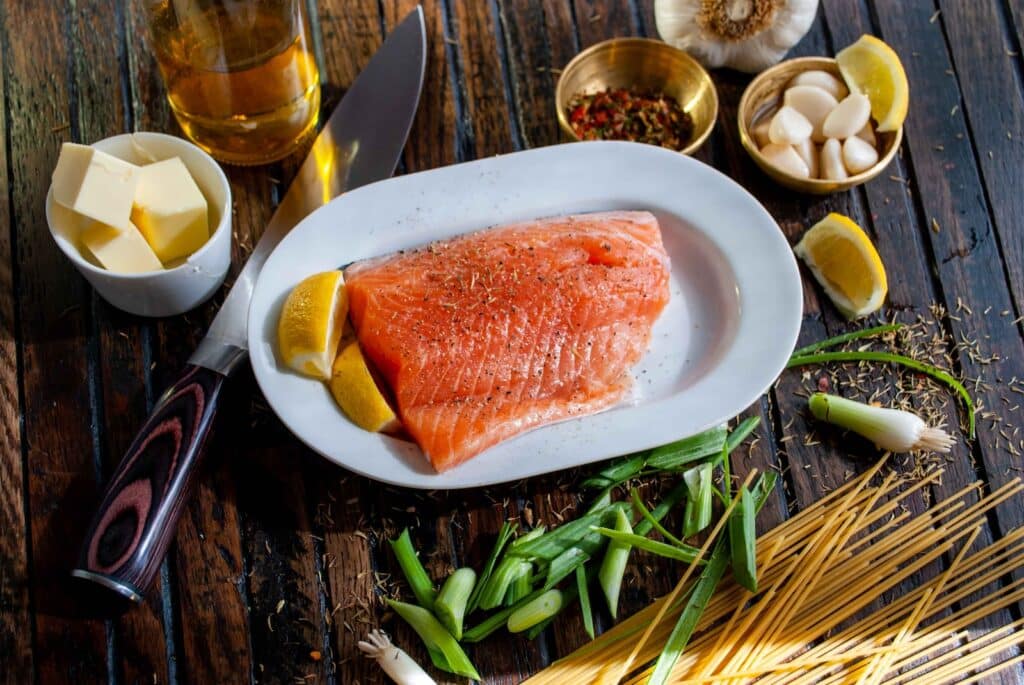
Omega-3 fatty acids, specifically EPA and DHA, play a crucial role in muscle growth by reducing inflammation and promoting muscle recovery. They have been shown to improve protein synthesis, leading to increased muscle mass, and may also help reduce muscle soreness after exercise. Furthermore, omega-3s support joint health and cardiovascular function, which are essential for overall fitness and well-being.
Incorporate a variety of omega-3-rich foods into your diet to support muscle growth and recovery:
- Fatty fish (salmon, mackerel, sardines, herring)
- Fish oil supplements
- Walnuts
- Chia seeds
- Flaxseeds and flaxseed oil
- Algae-based supplements (for a plant-based option)
11. Zinc: Strengthening Your Immune System and Promoting Muscle Repair
Zinc is an essential mineral that plays a critical role in immune function, protein synthesis, and cell growth, all of which are important for muscle repair and growth. It also supports hormone production, particularly testosterone, which is vital for muscle development. Adequate zinc intake can help improve exercise performance, promote recovery, and prevent muscle wasting.
To ensure you get enough zinc for optimal muscle growth, include a variety of zinc-rich foods in your diet:
- Red meat (beef, lamb, pork)
- Poultry (chicken, turkey)
- Fish and shellfish (oysters, crab, lobster)
- Legumes (beans, lentils, chickpeas)
- Nuts and seeds (pumpkin seeds, cashews, almonds)
- Whole grains (brown rice, whole wheat bread, oats)
- Dairy products (milk, yogurt, cheese)
12. Antioxidants: Combating Exercise-Induced Oxidative Stress
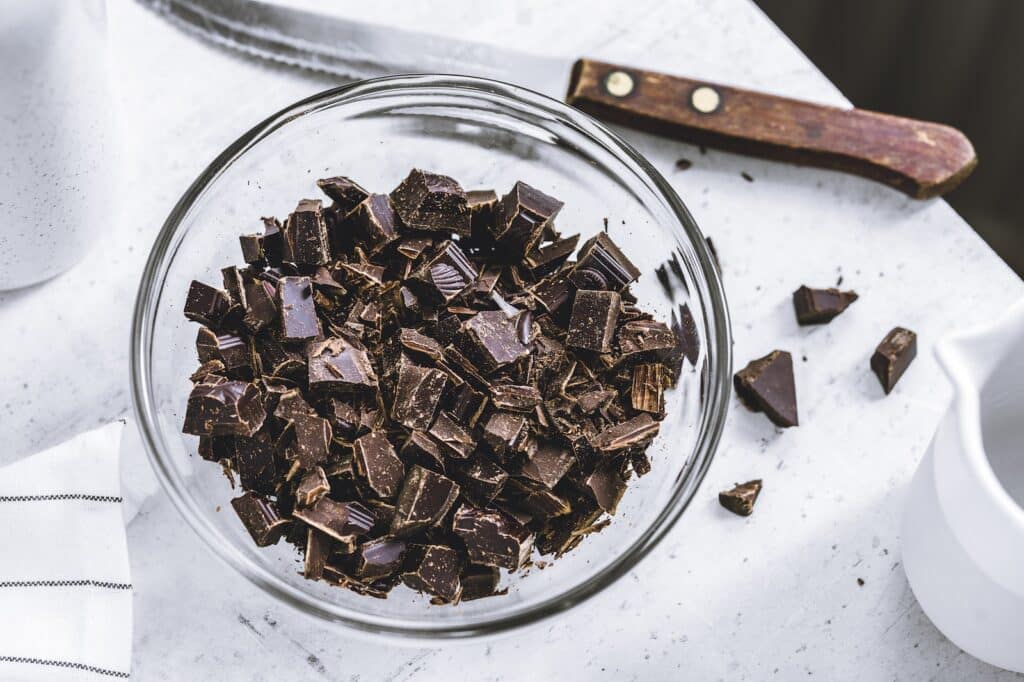
Antioxidants are compounds that help protect your body against the damaging effects of oxidative stress, which can be caused by intense exercise. They support muscle recovery and repair by neutralizing harmful free radicals and reducing inflammation. Additionally, antioxidants play a role in maintaining a healthy immune system, which is essential for overall muscle health and growth.
Incorporate a variety of antioxidant-rich foods into your diet to support muscle health and combat exercise-induced oxidative stress:
- Berries (blueberries, strawberries, raspberries)
- Dark leafy greens (spinach, kale, Swiss chard)
- Cruciferous vegetables (broccoli, cauliflower, Brussels sprouts)
- Brightly colored fruits and vegetables (beets, red bell peppers, oranges)
- Nuts and seeds (walnuts, almonds, sunflower seeds)
- Green tea
- Dark chocolate
- Spices and herbs (turmeric, ginger, cinnamon, oregano)
Conclusion
It takes more than just working out in the gym to build muscle; your body also needs the right nutrients to support growth and recovery. You’ll be well on your way to making the muscle gains you’ve been working toward by including these 12 crucial nutrients in your diet. Always keep in mind that a balanced, well-rounded diet is essential to maximizing your ability to gain muscle and maintain good health.
Frequently Asked Questions
Can I still build muscle effectively if I follow a vegetarian or vegan diet?
Yes, it is possible to build muscle effectively on a vegetarian or vegan diet. Make sure to consume a variety of plant-based proteins from different sources to ensure you are getting all the necessary amino acids to build muscle. These plant-based protein sources may include legumes, tofu, tempeh, seitan, nuts, and seeds. Also watch out for other essential nutrients for muscle growth like iron, calcium, and vitamin B12 in your diet as well. These nutrients may be harder to get from plant-based sources.
How can I optimize my nutrient intake for muscle growth without consuming excess calories?
To optimize nutrient intake without consuming excess calories, focus on choosing nutrient-dense, whole foods that are rich in the essential nutrients for muscle growth. Prioritize lean protein sources, complex carbohydrates, healthy fats, and a variety of fruits and vegetables. Additionally, monitor your portion sizes and consider tracking your macronutrient intake to ensure you’re meeting your goals without overeating.
Is it necessary to take supplements to support muscle growth, or can I get all the nutrients I need from food?
While it’s possible to get all the nutrients you need for muscle growth from a well-balanced diet, certain individuals may benefit from supplementation. Factors such as dietary restrictions, intense training regimens, or specific nutrient deficiencies may necessitate the use of supplements. Consider consulting a registered dietitian or sports nutritionist to determine whether supplementation is appropriate for your individual needs.
How often should I consume protein-rich foods to support optimal muscle growth?
Consuming protein-rich foods throughout the day can help support optimal muscle growth. Aim to include a source of protein in each meal and snack, as this can help maintain a steady supply of amino acids for muscle repair and growth. Research suggests that consuming 20-30 grams of protein per meal may be optimal for promoting muscle protein synthesis.
Can overconsumption of certain nutrients have negative effects on muscle growth or overall health?
Overconsumption of certain nutrients can indeed have negative effects on muscle growth and overall health. For example, excessive protein intake can strain the kidneys and may lead to dehydration. Overconsumption of carbohydrates, particularly simple sugars, can cause spikes in blood sugar and contribute to fat gain. Similarly, consuming too many unhealthy fats can lead to weight gain and increased inflammation. It’s essential to maintain a balanced diet and consume nutrients in appropriate amounts to support muscle growth and overall health.
